Japan's yen - the unlikely investment haven
- Published
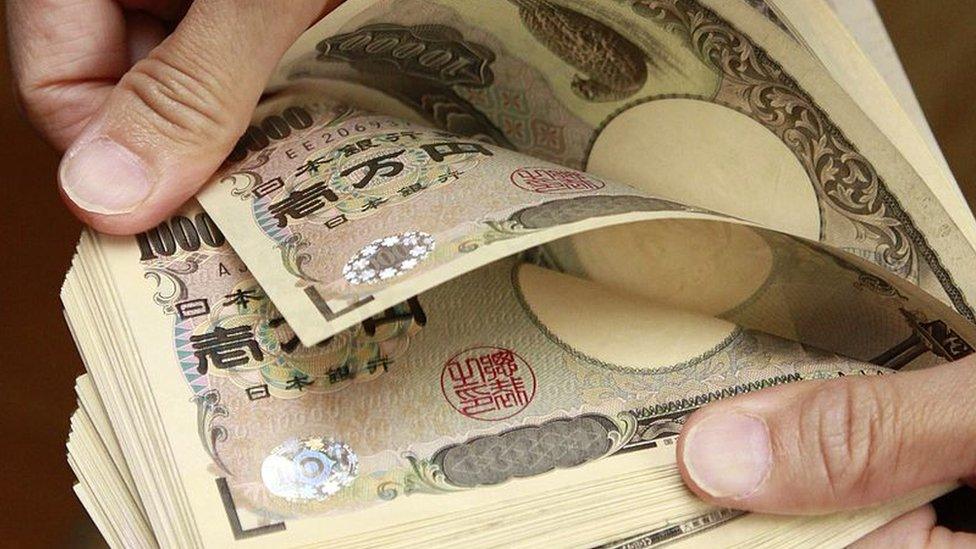
With the global economy in troubled waters, the Japanese yen persists as an unlikely haven for investors who want to keep their money safe.
Worries ranging from China's slowdown to the euro crisis and a possible Brexit continue to unnerve investors.
And while Japan is by no means a thriving economy, it still seems to provide more stability than many of the rest of the world's economies.
That has sent the yen to a three-year high against the dollar.
It is expected to remain strong.
Yet if you just looked at the Japanese economy itself, that does come as somewhat of a surprise.
'Beauty contest'
Think Japan and you'll most likely be thinking quantitative easing, negative interest rates, deflation and the looming threat of recession.
Prime Minister Shinzo Abe's economic reform programme is widely seen as not having been quite as successful as the government had hoped.
So on the face of it, Japan doesn't seem like the country you'd turn to if you wanted to park your money in a safe spot.
"But safety is always a beauty contest - the definition of a safe haven is that it's merely safer than others," Martin Schulz of the Fujitsu Institute in Tokyo told the BBC.
Yet how come investors see the yen as safer than the rest of the pack?
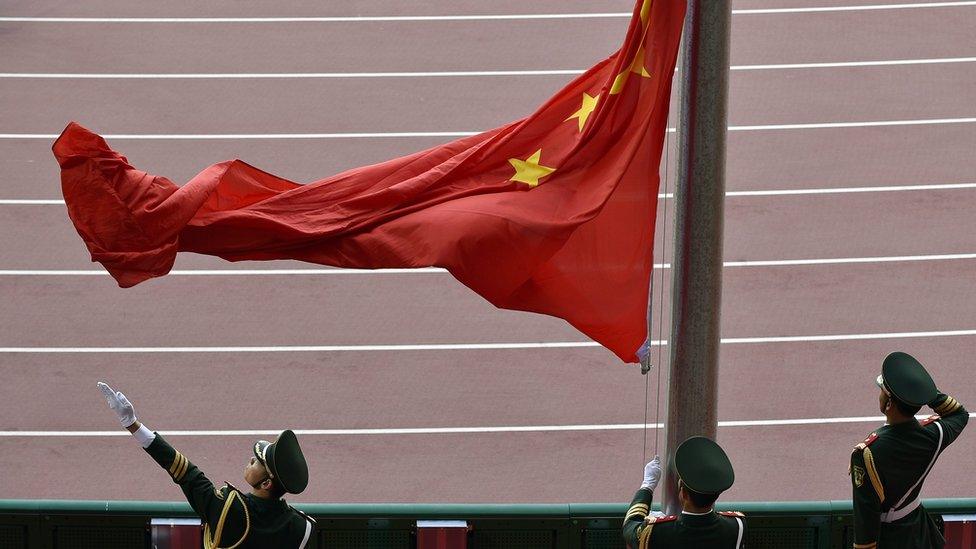
China's slowdown has taken the wind out of the Asian economies
Government support
"While there's a slowdown in Asia, Japan is on an expansionary monetary and fiscal course which means the domestic economy is well supported and faces very few domestic risks right now," Mr Schulz explains.
"The overall Asian markets, however, are facing major risks both from commodity prices and the slowdown in China."
In addition to that, there is the continuing concern over Europe; the eurozone crisis hasn't gone away and the upcoming referendum in the UK over whether to leave the European Union is significantly adding to the tensions.
Across the Atlantic, the US economy is recovering slower than many had hoped and is not yet strong enough to shore up global growth.
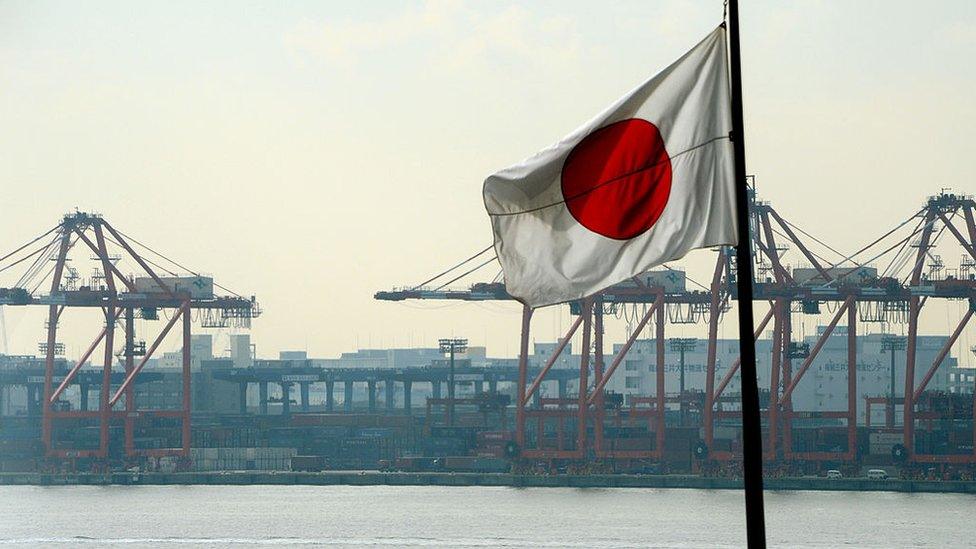
Tokyo's goal was that a weaker yen would help exports and inflation
Tokyo's dilemma
Paradoxically, the very monetary policy that is seen as reassuring by international investors was originally aimed at actually weakening the yen.
The Bank of Japan's policy is part of the larger Abenomics reform agenda and the hope was that a lower yen would support the country's vital exporters and help get inflation up.
After years of flat-lining, Japan's economy is still struggling to achieve notable growth rates. And the surging yen will make it even harder for Shinzo Abe's reforms to take hold.
The country's benchmark Nikkei index on Monday fell sharply by 3.5% over the strong currency.
Japanese goods are being made ever more expensive to export - because of the success of the currency in which they are priced.
- Published6 June 2016
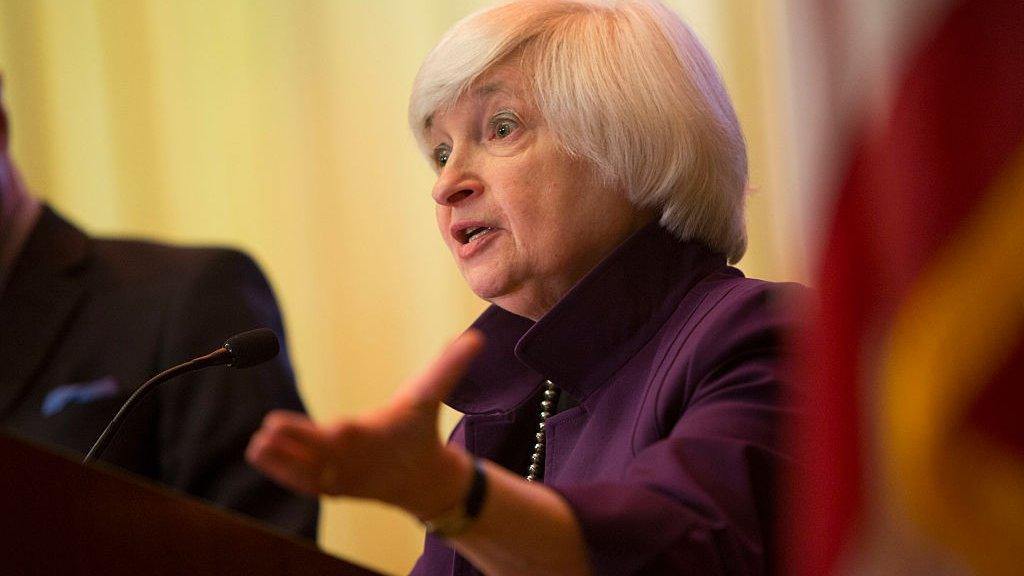
- Published18 May 2016
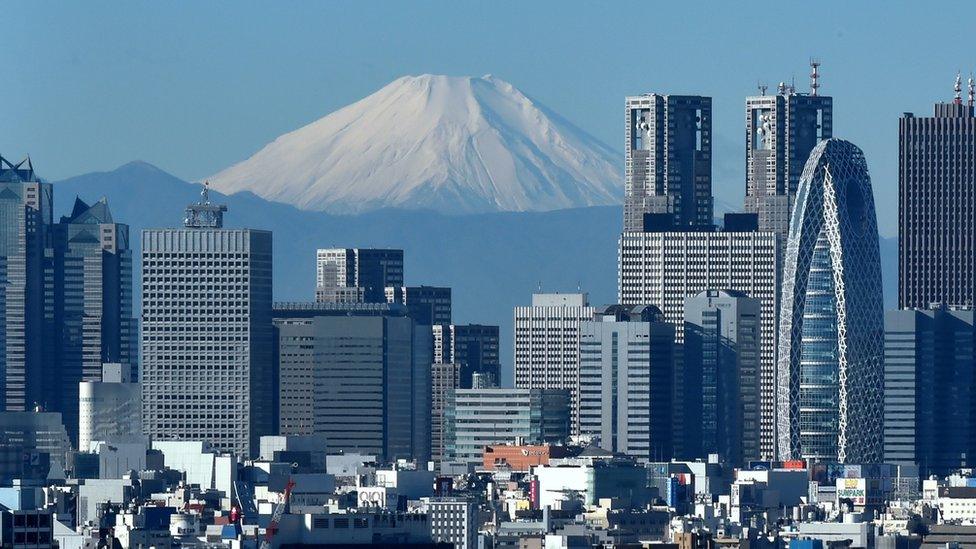
- Published11 April 2016